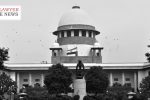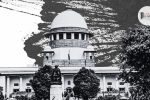Punjab and Haryana High Court Allows Petition Seeking Production of Electronic Records in NDPS Case

In a recent judgment, the Punjab and Haryana High Court, in the case of Peter Chand v. State of Haryana, has allowed a petition seeking the production of electronic records in a NDPS case. The petitioner had filed a petition under Section 482 of the Criminal Procedure Code (Cr.P.C) seeking the quashing of an order dismissing his application requesting the production of call detail records (CDRs), Google Map history/timeline, and Facebook location history details of certain individuals.
The petitioner, Peter Chand, and his co-accused were arrested after a police apprehension during which a commercial quantity of contraband was found in their possession. During the trial, the petitioner filed an application seeking the production of electronic records from the Superintendent of Police, Sirsa, and the relevant telecom company to establish his innocence and challenge the police’s version of events.
The trial court had dismissed the petitioner’s application, prompting him to approach the Punjab and Haryana High Court. The petitioner argued that the trial court’s decision was contrary to the law laid down by the Supreme Court in the case of Suresh Kumar vs. Union of India, which held that an accused could be allowed to summon CDRs of the mobile phones of police officers to prove their absence from the location of the alleged recovery.
Justice Karamjit Singh, presiding over the case, noted that the trial had already commenced, and the petitioner intended to confront the investigating officer and other witnesses with the CDRs and other digital records from the telecom company to support his defense. The judge observed that the trial court had failed to consider the relevant Supreme Court judgment in its decision.
Justice Singh further stated that in this particular case, there was no secret information involved, and the recovery of contraband was a result of chance rather than any confidential tip-off. Therefore, preserving and producing the requested electronic records would not compromise the source of any secret information. The judge also emphasized that the police officers whose CDRs were sought were not part of any special task force and did not hold sensitive positions, ensuring that their privacy and personal safety would not be jeopardized.
Based on these considerations, the Punjab and Haryana High Court allowed the petition, setting aside the trial court’s order. The court directed the investigating officer and the relevant telecom company to preserve the CDRs of the police officials, private individuals, the petitioner, and his co-accused. The petitioner was granted the liberty to summon these records at the appropriate stage of the trial to confront prosecution witnesses or present them as part of the defense evidence. However, the admissibility and relevance of the electronic records would be subject to the provisions of Section 65A and Section 65B of the Indian Evidence Act.
With this judgment, the Punjab and Haryana High Court has emphasized the importance of preserving and producing electronic records in criminal cases to ensure a fair trial and protect the rights of the accused. The decision aligns with the Supreme Court’s stance on the admissibility of CDRs as evidence in criminal proceedings.
Peter Chand v. State of Haryana






